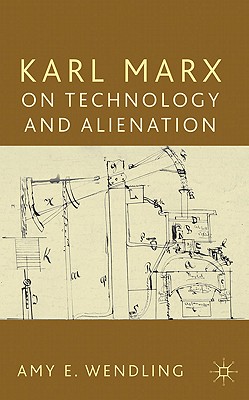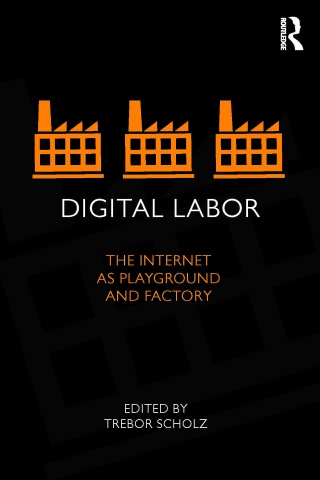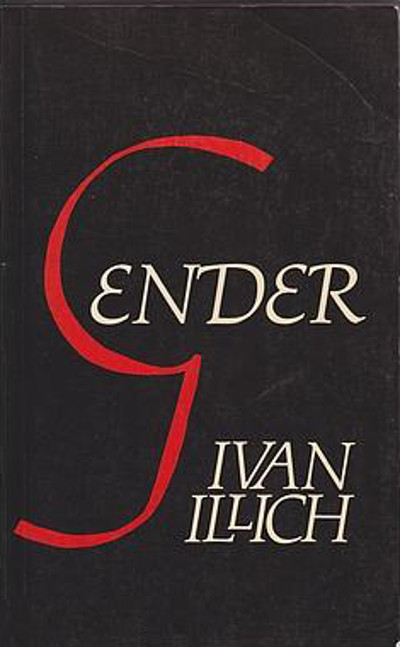Amy E. Wendling: Karl Marx on Technology and Alienation (2009)
Filed under book | Tags: · alienation, capitalism, communism, labour, machine, philosophy, philosophy of technology, revolution, technology, thermodynamics, value, women, work

“In Karl Marx on Technology and Alienation, Amy Wendling draws on lesser known archival materials, including Marx’s notebooks on women and patriarchy and technology to offer a new interpretation of Marx’s concept of alienation as it develops throughout his works. For Marx, technology exemplifies the interaction between human beings and nature. Marx’s description of this interaction is in transition throughout his works. An older, humanist and vitalist paradigm sets the human being against nature as a qualitatively different type of force. A newer, thermodynamic paradigm sets the human being and nature in continuity. Marx’s work occurs at the juncture of these paradigms and contains elements of each. This affects his deployment of the concept ‘labor’. Labor is demoted from its status as a meaningful human activity that confers political status and mastery of the natural world, and it becomes a mere nodal point where energy is transferred. Against this backdrop, Marx increasingly appealed not to meaningful labor but to the abolition of labor as the culmination of human freedom. He also shows how the labours of members of the working class, including women, are interpreted in the old and new paradigms.”
Publisher Palgrave Macmillan, 2009
ISBN 0230224407, 9780230224407
272 pages
Reviews: Chris Arthur (Marx & Philosophy Review of Books, 2010), Richard Cotter (LSE Review of Books, 2013), Tom Bunyard (Historical Materialism, 2014), McKenzie Wark (Public Seminar, 2015).
Comment (0)Trebor Scholz (ed.): Digital Labor: The Internet as Playground and Factory (2012)
Filed under book | Tags: · biopolitics, gift economy, internet, labour, neoliberalism, participation, play, playbour, politics, social media, technology, value, web, youtube

“Digital Labor calls on the reader to examine the shifting sites of labor markets to the Internet through the lens of their political, technological, and historical making. Internet users currently create most of the content that makes up the web: they search, link, tweet, and post updates—leaving their “deep” data exposed. Meanwhile, governments listen in, and big corporations track, analyze, and predict users’ interests and habits.
This unique collection of essays provides a wide-ranging account of the dark side of the Internet. It claims that the divide between leisure time and work has vanished so that every aspect of life drives the digital economy. The book reveals the anatomy of playbor (play/labor), the lure of exploitation and the potential for empowerment. Ultimately, the 14 thought-provoking chapters in this volume ask how users can politicize their troubled complicity, create public alternatives to the centralized social web, and thrive online.”
Contributors: Mark Andrejevic, Ayhan Aytes, Michel Bauwens, Jonathan Beller, Patricia Ticineto Clough, Sean Cubitt, Jodi Dean, Abigail De Kosnik, Julian Dibbell, Christian Fuchs, Lisa Nakamura, Andrew Ross, Ned Rossiter, Trebor Scholz, Tizania Terranova, McKenzie Wark, and Soenke Zehle.
Publisher Routledge, 2012
ISBN 0415896959, 9780415896955
258 pages
Reviews: Sebastian Sevignani (triple C, 2013), Andreas Wittel (Inf, Comm & Soc, 2014), Stephanie Anne Brown (Transformative Works & Cult, 2014), Gregory J. Downey (J Assoc Info Sci & Tech, 2015).
Conference (2009, from Archive.org)
Next conference (14-16 Nov 2014, CfP)
Publisher
Ivan Illich: Gender (1982)
Filed under book | Tags: · commons, economics, economy, gender, labour, marxism, medicine, men, production, rent, sex, sexuality, women, work

“The break with the past, which has been described by others as the transition to a capitalist mode of production, I describe here as the transition from the aegis of gender to the regime of sex.” Ivan Illich insists that we survey attitudes to male and female in both industrial society and its antecedents in order to recover a lost ‘art of living’. He argues that only a truly radical scrutiny of scarcity, with special attention in this study to the sexes and society, past and present, can prevent an intensification of this grim predicament.
Publisher Marion Boyars, London, 1982
ISBN 9780714520902
192 pages
Reviews: Arlie Russell Hochschild (New York Times, 1983), Ninna Nyberg-Sørensen (Acta Sociologica, 1987).
EPUB (updated on 2019-10-1)
PDF (30 MB, added on 2019-10-1)

